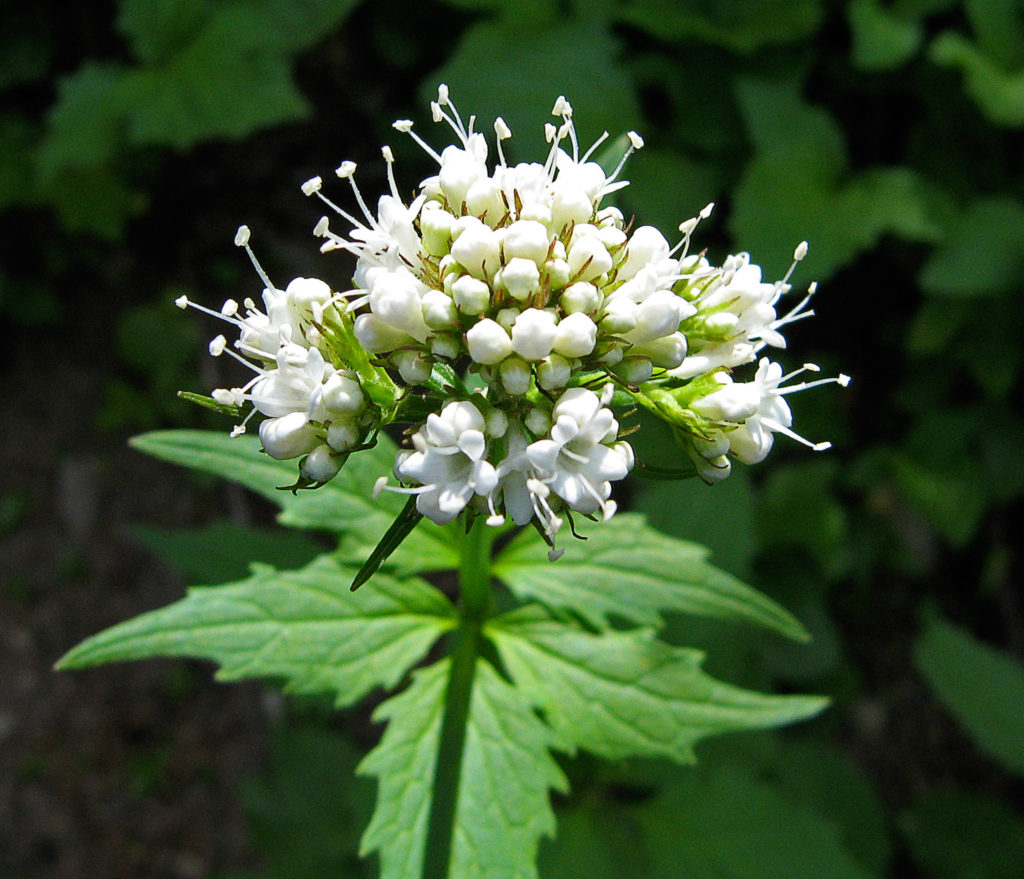
Am I Sick, or Just Freaking Out?
in Anxiety / Blood Sugar / Brain Chemistry / Diet and Nutrition / Exercise, Training, and Fitness / Fighting Infection / Herbs / Stress
It’s kind of like a tornado just came through, isn’t it?
There’s a debris field of mayhem in its wake, and we’re looking around trying to figure out what the “new normal” is, what damage has been done, and what we need to worry about next.
In the case of this pandemic, the wreckage behind the storm is made up of our uncertainty and unanswered questions. In short, it produces a lot of anxiety.
And that anxiety drives a lot of internal questions. You know the questions I’m talking about…
What if I get sick?
What if someone I love gets sick?
Am I getting sick now?
Should I be worried about getting sick?
Can I get sick just from worrying about getting sick?
I’m guessing some form of these questions are floating around for all of us. But, so what? Is there anything we can do about it?
I think there is.
To help calm the storm, I think we have to understand the difference between feeling nervous or anxious, and what may be actual, mild symptoms of the virus.
In other words, are you really sick, or are you just freaking out? Let’s break that down.
The Cortisol Connection
We recently talked about ways you can support your immune system, but we didn’t cover the elephant in the room: stress.
It doesn’t take a rocket scientist to determine that, in the middle of the turmoil around a pandemic, stress levels are high. And with increased stress comes increased cortisol.
What is cortisol? It’s commonly called the “stress hormone”, and it’s produced by your adrenal glands, which sit on top of your kidneys.
Cortisol has numerous functions, but chief among them is to raise your blood sugar when it’s low, and regulate your body’s response to inflammation.Over the long-term, high levels of cortisol can suppress your immune system, and lengthen the time it takes for wounds to heal.
So, if stress is making your cortisol levels screwy, lots of things happen…
- Your blood sugar fluctuates, so you can vacillate from feeling good and stable one minute, to shaky and tired the next.
- Your susceptibility to injury and illness increase.
- You can feel more anxious, irritable, and nervous.
All of these symptoms can start to make you feel like you’re not yourself, but this does NOT mean you are suddenly infected by coronavirus.

Photo by Mika Baumeister
Coronavirus causes a certain set of symptoms. Here are the top 7, in order of likelihood:
- fever
- dry cough
- fatigue
- coughing up phlegm
- shortness of breath
- joint or muscle pain
- sore throat
If you were having anxiety or you were under significant stress (or both), you might expect to have some fatigue or (in severe cases) shortness of breath.
But what about the other symptoms on our coronavirus list? If you were experiencing a lot of anxiety, would you expect to have fever, cough, muscle pain, sore throat, etc.? Not so much.
So if you’re feeling antsy, just check in from time to time on everything you’re feeling. If you don’t have the typical symptoms arising with an infection, but you still feel anxious, it may be safe to assume you’re just stressed out.
But About That Anxiety…
Just because you’re not infected doesn’t mean the extra anxiety and stress simply go away, of course. And our baseline health in “normal” times has a profound influence on what we are able to handle once things get extreme.
Put another way, you don’t want to set out to sea in rough waters with a boat that already has holes in it. If we know the broader circumstances that can drive anxiety — those things that make us much more likely to feel anxious in the first place — we will be better prepared to weather any storm ahead.
What can put holes in our boat? A few things…
- Low blood sugar
If you have low blood sugar (also known as hypoglycemia, or reactive hypoglycemia), you are much more likely to experience anxiety. If you can’t go more than 2-3 hours without eating, you frequently crash after having a meal, or you’re dependent on caffeine to feel like you have enough energy, you may be hypoglycemic.
Time to get this handled. Most people have a sense of what might trigger their blood sugar to fluctuate (too much sugar, alcohol, or refined carbohydrates, for example). If you do, now is the time to work on them.
And if you don’t, get with a healthcare practitioner who can help you sort it out. It’ll pay off in spades, and you’ll get through this pandemic with significantly less hair-pulling.
- Excess caffeine
Am I the only one in the midst of this pandemic who has a weird sensation, caught between feeling like a workaholic and someone on permanent spring vacation?

Photo by Nathan Dumlao
My usual routine on a weekend morning might be to stay home, have a cup of coffee (ok, probably more than one), read the paper, and chill out for a bit. This would be fine, except that every day feels a little bit like the weekend now!
When we’re not in our usual routine, it’s easy to let things slide. If you’re feeling more prone to anxiety, it’s time to reign in excessive caffeine consumption.
What’s excessive? This varies from person to person. Some common admonitions from well-known health authorities might tell you that 4 cups of coffee or 10 cans of soda per day are ok.
(I swear I’m not making this up.)
That’s way too much. (10 cans?! Seriously?!) Most people should keep caffeine intake to no more than 1-2 cups a day, tops, and even less for someone prone to anxiety.
- Nutrient deficiencies
Being low in a vital vitamin or mineral is not good if we’re under lots of stress. The biggies to consider that might promote anxiety are B3, B6, B9, B12, and Magnesium.
Think you’re unlikely to be lacking in any of these areas? Think again. Just as a sampling, consider these facts…
- Almost half of the U.S. population has been shown to get less than the required amount of magnesium from their food.
- Deficiency rates for B12 have been shown to be as high as 60-80% among vegetarians, and is much more common among the elderly.
- About a quarter of people who DO NOT take supplements have been shown to have low B6 status, and even up to 10% who DO take supplements.
Bottom line? If you’re prone to anxiety, get yourself checked. And if you’re deficient, or suspect you are, please don’t pick this stuff up from the grocery store or some big pharmacy, where the quality is questionable.
Get it from a high quality local pharmacy (like People’s, here in Austin), or pick it up from my Wellevate dispensary. (To get more information about ways you can support your immune system in these times, check out my last post.)
- Hyperthyroidism
This is the condition where your thyroid gland is OVERactive. With an overactive thyroid, the metabolism of every cell in your body is turned up to high speed. Just like running an engine at high intensity, this is not a condition that’s conducive to a relaxed, calm state.
While not exceedingly common, if you suspect you might have this (here’s a good primer), get it checked out.
And for those of you taking medication for HYPOthyroid (i.e. low thyroid function), you need to make sure you’re not taking too much, which can push you towards having exactly the kinds of symptoms we’re trying to avoid.
If it’s been more than a year since you had your thyroid hormone levels and your medication dosages checked, get it done!
What Else?
Let’s say you’ve tackled all these things, but you still notice some anxiety. Is there anything you can do, short of getting on prescription strength Xanax?
Definitely.
For starters, exercise should be at the top of your list. There are more studies than I can count showing that physical activity — and almost any kind of physical activity — helps to reduce anxiety and promote a sense of well-being.
This is particularly true if the activity is outdoors, in “green space”. This is a good practice in the best of times. In today’s world, it’s essential.

Photo by Sylwia Bartyzel
Next on your list should be a couple of herbs that have shown real promise in helping people curb anxiety safely.
| A quick reminder about safety with herbal supplements… |
|---|
| If you are currently taking a prescription medication, or you are pregnant, breastfeeding, or considering giving any herbal supplement to a child, DO NOT do so unless you have consulted with your physician. There can be dangerous interactions between herbal supplements and medications, and you don’t want to take any unnecessary chances if you are pregnant, breastfeeding, or giving this to a child. Got it? |
With that out of the way, the two herbs I like the best for this purpose are Passion Flower and Valerian.
Passion Flower is a perennial, climbing vine that is native to the southeastern United States as well as Central and South America. (Incidentally, it’s also the Tennessee state wildflower, and the Cherokee there called it Ocoee, for which the Ocoee River and valley are named.) It’s been used as a sedative for centuries.

Passionflower: Photo by Andy Quickenden-Smith
There are many different species of Passion Flower on the planet. The one you’re looking for is passiflora incarnata. A dose of about 400-800mg per day seems to help most people.
If you’re pregnant or breastfeeding, avoid using Passion Flower unless you’re working with a knowledgeable healthcare practitioner.
Valerian is another herb that works well to control anxiety, and is particularly helpful if you’re having trouble sleeping.
It was used by the ancient Greeks and Romans, and has been used since those times as a natural sedative. Shoot for 400-900mg a day, especially within 1-2 hours before bedtime.

Valerian: Photo by Pfly
And remember, it’s a sedative, so don’t double down on this along with your favorite margarita recipe, or any other alcohol, for that matter.
Are there other herbs and supplements that show promise in helping lessen anxiety? Absolutely. But if one is to broadly promote an herb or supplement for general use, it needs to be safe and effective over a long period of time, with a minimum of complications and caveats for those most at risk among us.
In other words, if you’re working through anxiety on your own, stick with what’s tried and true. If it starts getting more complicated, or what you’re doing isn’t effective, it’s time to employ some expert help (in the form of a knowledgeable practitioner) so you can figure it out safely.
I hope this helps you tackle some of the anxious feelings most of us have been having these days.
I’d like to know what else you need for this time? Do you have everything under control? Is there some piece of information, or a skill you wish you had, that would get you through this?
Let me know!

